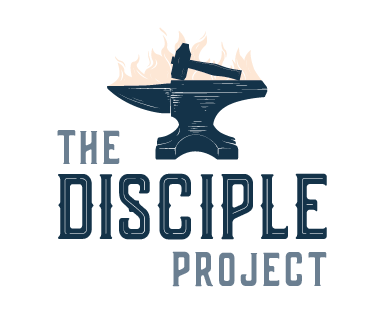This is part three of a four part series called The Process, based on my new discipleship message series for youth, but, before the message can impact them, it must impact you. You can check out the beginning of the series here.
If you want the first lesson of my new series, free, sign up for my Youth Ministry Round Up Newsletter.
There is a process in blacksmithing called quenching. The quenching is where the hot metal is plunged into the water to prevent brittleness and breakage. I truly believe that baptism is the spiritual quenching that keeps new believers intact so they can grow.
I believe three things are accomplished when new believing students are baptized: boldness increases through their confession, security of community and the joy of accountability.
Boldness of Confession
John the Baptist baptized anyone who wanted to be baptized which flew in the face of Jewish Law where a type of baptism, or ritual cleaning, was used for those who were new to Judaism or as a way for those who had been defiled (touching a dead body, etc.) could be made clean.
John’s Baptism was for those who needed to repent. It takes guts to say, “I’m wrong. I’m a sinner and I need to stop going the wrong way. Baptism was public, in the Jordan River, and everyone could see the commitment you were making.
For a teenager, doing anything that could bring attention to them, in a negative way, is scary. You wouldn’t think that based on what you see on Tik Tok, but in a way baptism is kind of like Tik Tok. For a teen to make a video and post it, is daring because they’re saying, “I’m here”. In the same way, Baptism says, “I’m here. I believe.”
Baptism has long been called an outward act of an inward change, and it still is. As youth pastor’s we should encourage teens to be bold in their faith and baptism is a good first step.
Security of Community
When I was baptized, the first time, in a Catholic church as an infant, I had no idea what what this committing meant, this was my parents commitment. The second time I was baptized, I was baptized at the beach with a few counselors at the camp I was serving at.
Even though my baptism wasn’t at church, I was surrounded by believers and they rejoiced in my act of spiritual growth. With the immediacy of baptism, I felt like the jailer who imprisoned Paul or the Ethiopian Philip baptized,
“Look, here is water. What can stand in the way of my being baptized?”
We are not just baptizing teens into a faith but a community. As youth pastors, we have to not only emphasize the act of baptism but the opportunity of growing in community that baptism brings. Sadly, many new converts to Christianity are left to fend for themselves once they’ve prayed a prayer or gone to an altar. Baptism can be a powerful way to introduce new teen believers to the congregation and encourage the congregation to walk along side of them in their journey.
Baptism without community commitment is just another cold ritual.Teens need to know people will walk with them post baptism.
Our desire should be for students to publicly declare their faith, in a loving environment of believers, so as to solidify their connection between themselves and the Body of Christ. With a steady departure of teens from the faith, baptism can strengthen their faith and should strengthen their relationships within the Body.
Joy of Accountability
As I said earlier, John was baptizing people in the Jordon River. This was a pubic act that hundreds could have witnessed and the chances of seeing one of these people baptized in the market place was a real possibility. Being publicly baptized is an act of discipleship which is to say, “I’m accountable for my faith.”
Accountability, for those who have been baptized, means
using their gifts (I Peter 4:10)
serving others (Gal. 5:13)
loving one another (John 13:34)
This is the expectation from the Body of Christ and should be an expectation of the one baptized of the Body of Christ. Accountability goes both ways.
Let’s try an exercise, if you’ve been baptized, go back to that moment. See the person you were baptized by and the congregation you were baptized in front of. Did they live up to your expectations? Did you live up to theirs? Not everyone’s expectations were probably met on either side. Our imperfections are part of being in the Body of Christ, it’s why we need each other.
Now, think about the last student you baptized. How well did you prepare them for life in community? Was a sense of accountability instilled in them? How well was the Body of Christ prepared to receive this new young person to community?
Now, think about the young person you are about to baptize, how can you learn from the last baptism to this one? What will you change? How can you prepare both the baptized and The Body to receive one another for a long lasting relationship?
The water of youth ministry is to see that new believers do not crack in their faith just when they’re getting started. Confession, community and accountability is the road you prepare for every new believer entering into the Body of Christ and the path you create for the Body of Christ to embrace the new believer.
If you want to get articles like this in your inbox, be sure to subscribe to my Youth Ministry Round Up Newsletter.
